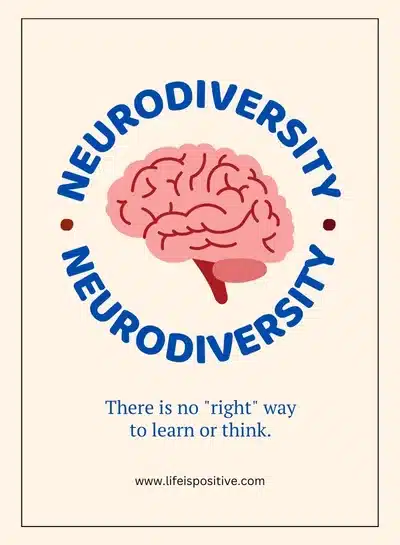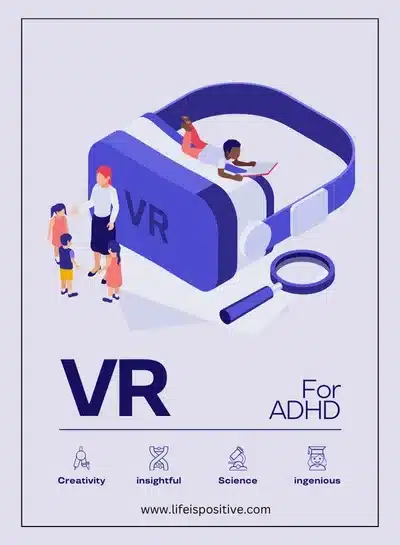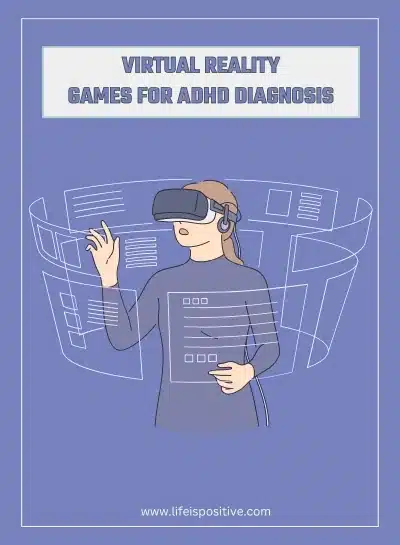|
Getting your Trinity Audio player ready...
|
Ever stumbled upon a concept so cool it makes you stop and think, “Wow, we truly are living in the future”?
Well, strap in because VR games are doing just that, especially in the world of health and diagnosis.
Video games aren’t just for fun or escape but tools that could help diagnose ADHD.
Yes, you read that right.
The latest buzz is all about how VR games are revolutionizing the way specialists diagnose ADHD, making the process more interactive and, believe it or not, more accurate.
Gone are the days of long, often tedious traditional assessments.
Now, with just a VR headset and a game, diagnosing ADHD is turning into an experience that’s both engaging for the person being assessed and incredibly insightful for professionals.
Read: Why LoFi Music for Concentration is Your Ultimate Productivity Hack
This leap towards technology-driven diagnosis isn’t just fascinating; it’s a game-changer in the truest sense.
So, let’s dive deeper into how these VR games are making waves in diagnosing ADHD, transforming the process into something out of a sci-fi novel and marking a significant advancement in the field of mental health.
Understanding ADHD
ADHD is a neurological disorder characterized by patterns of inattention, hyperactivity, and impulsivity that interfere with daily functioning or development.
It affects people of all ages but is most commonly identified in children.

Understanding ADHD is crucial for recognizing its impact on an individual’s life, from academic performance to personal relationships.
However, accurately diagnosing ADHD has always been a challenge due to the subjective nature of its symptoms and their overlap with other conditions.
The quest to diagnose ADHD more effectively has led researchers to explore alternative, innovative methods that offer a more nuanced understanding of the disorder.
The Limitations of Traditional Diagnosis Methods
Traditionally, diagnosing ADHD involves a combination of behavioral assessments, interviews, and questionnaires conducted by mental health professionals.
While these methods have been instrumental in identifying ADHD, they come with limitations.
The subjective nature of self-reported symptoms, the variability of ADHD manifestations, and the influence of external factors on behavior during assessment can all affect the accuracy of a diagnosis.
Read: How To Think Faster And Talk Smarter
These challenges highlight the need for more objective and comprehensive approaches to diagnosing ADHD, prompting the exploration of technology-driven solutions like VR games.
Introduction to VR Technology
VR stands for Virtual Reality.
It’s a technology that uses headsets, often combined with other equipment like controllers and sensors, to immerse users in a completely digital environment that feels realistic and interactive.
Virtual Reality (VR) technology transports users to three-dimensional, computer-generated environments where they can interact with surroundings in real-time.
Beyond its popular association with entertainment and gaming, VR has profound applications in education, training, therapy, and healthcare.

Its immersive nature offers a unique platform for simulating real-world scenarios in a controlled setting, making it an invaluable tool in fields requiring experiential learning or analysis.
The introduction of VR into the realm of psychological assessment, particularly to diagnose ADHD, marks a significant leap forward, blending cutting-edge technology with mental health innovation.
How VR Games Diagnose ADHD
VR games designed to diagnose ADHD are not your typical video games.
They are meticulously crafted with input from psychologists, neuroscientists, and mental health experts to target specific behaviors and cognitive processes associated with ADHD.
Here’s how they work:
1. Engagement and Immersion:
VR games captivate users, making it easier to assess their natural responses and behaviors in a variety of scenarios that mimic real-life situations.
2. Objective Measurement:
These games are equipped with tracking and monitoring systems that record precise data on attention, impulsivity, and motor activity—core areas affected by ADHD.
3. Customized Scenarios:
Different games focus on various aspects of ADHD, allowing for a comprehensive assessment.
For instance, some games might test the ability to stay focused amid distractions, while others might evaluate impulse control or the capacity for delayed gratification.
4. Real-Time Feedback:
Immediate feedback provided by VR games helps in understanding how individuals with ADHD react and adapt to challenges, offering insights into their coping mechanisms and areas of difficulty.
By leveraging these features, VR games offer a dynamic and accurate way to diagnose ADHD, providing a level of depth and precision that traditional methods struggle to achieve.
Case Studies and Research Findings
Recent studies underscore the effectiveness of VR games in diagnosing ADHD.
One notable research project involved a VR game that simulated a classroom environment.
Participants were tasked with completing assignments while dealing with distractions typical of a classroom setting.
The game successfully identified children with ADHD by analyzing their behavior patterns and attention spans, showcasing the potential of VR technology in clinical diagnostics.
Another study focused on a VR game that simulated crossing a busy street—a task requiring attention, timing, and impulse control.
The performance of individuals with ADHD in this game offered valuable data, highlighting the differences in decision-making and risk assessment compared to individuals without ADHD.
Benefits of Using VR Games for Diagnosis
The use of VR games to diagnose ADHD comes with several benefits:
Accuracy: The objective data collected from VR games reduce the subjectivity and bias inherent in traditional diagnostic methods.

Engagement: The interactive and engaging nature of VR games increases participant motivation, particularly in children, leading to more reliable assessment outcomes.
Safety and Control: VR environments allow for the safe simulation of scenarios that might be difficult or impossible to replicate in real life, all while under controlled conditions.
Comprehensive Assessment: VR games can be designed to test a wide range of ADHD symptoms, providing a holistic view of the individual’s abilities and challenges.
Challenges and Considerations
While VR games offer a promising avenue for ADHD diagnosis, there are challenges to consider, including the cost of VR technology, the need for specialized equipment, and ensuring accessibility for all patients.
Additionally, as with any emerging technology, further research is needed to standardize these tools for widespread clinical use.
Future Directions
As technology advances, the potential for VR in diagnosing and even treating ADHD is immense.
Future developments could see more personalized VR games, tailored to individual cognitive profiles, and the integration of artificial intelligence to enhance diagnostic precision.
The continued exploration of VR technology holds the promise of transforming ADHD diagnosis and treatment, offering hope for more accurate, engaging, and effective mental health care.
Final Thoughts On VR Games Diagnose ADHD
The innovative use of VR games to diagnose ADHD represents a significant advancement in mental health diagnostics.
By providing an immersive, engaging, and precise tool for assessment, VR technology is paving the way for a better understanding of ADHD and its complexities.
As we continue to explore and refine these methods, the promise of more accurate diagnoses and personalized care becomes increasingly tangible.
The journey to integrate VR games into mainstream ADHD diagnosis practices is just beginning, but the potential impact on individuals’ lives is profound.
Embracing technology in mental health care opens new doors for diagnosing ADHD, offering a brighter future for those navigating the challenges of this disorder.
For more empowering content, connect with our vibrant community here ➡️ Social Media.
